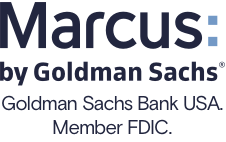Need Multiple Savings Accounts? Here’s Where to Bank

Many, or all, of the products featured on this page are from our advertising partners who compensate us when you take certain actions on our website or click to take an action on their website. However, this does not influence our evaluations. Our opinions are our own. Here is a list of our partners and here's how we make money.
Best banks for multiple savings accounts
The best banks for multiple savings accounts are those that offer high annual percentage yields (APYs). They should not charge monthly fees. Some options might even come with extra features, such as letting you nickname the accounts to personalize them with your savings goals.
Always make sure that you’re selecting a bank that has insurance from the Federal Insurance Deposit Corp. (FDIC). If you are banking with a credit union, pick one that is insured by the National Credit Union Administration (NCUA).
Below are a few examples of excellent savings accounts.
Alliant Credit Union | Alliant High-Rate Savings
|
Ally Bank | Ally Savings Account
|
Barclays | Barclays Online Savings
|
Capital One 360 | Capital One 360 Performance Savings
|
Discover® Bank | Discover® Online Savings Account
|
Synchrony Bank | Synchrony High-Yield Savings
|
» Want more options? See more of our favorite high-yield savings accounts.
5 tips for finding and using multiple savings accounts
1. Avoid monthly maintenance fees
Using multiple savings accounts can be less of a bonus and more of a costly burden if you’re hit with monthly maintenance fees. If a savings account has monthly surcharges, look for ways to get them waived. That might include keeping balances above a certain dollar amount or scheduling automatic transfers to savings.
2. Lock in strong rates
Avoiding monthly fees should be a priority, and securing a competitive rate should be, too. Online banks and credit unions tend to offer higher APYs than traditional brick-and-mortar banks, which makes them ideal for multiple savings accounts.
Look at it this way: Keeping $10,000 at a bank that offers a 0.01% APY would earn an annual yield of just a dollar. An APY of 5%, on the other hand, would earn about $500 — which can help you build an emergency fund faster.
» Need an emergency fund? Here’s how to start one
3. Use nicknames to personalize accounts
Some banks and credit unions listed above let people nickname their accounts based on their savings goals. You can name these accounts whatever you’d like, but we recommend keeping it simple: “vacation fund,” “emergency fund,” “new dishwasher fund.”

Member FDIC
SoFi Checking and Savings

4.60%
$0

Member FDIC
EverBank Performance℠ Savings

5.05%
$0

Member FDIC
Barclays Tiered Savings Account

4.80%
$250,000
4. Be aware of limits
Banks and credit unions generally limit the number of savings accounts people can have, though our favorites often let you open more than 15. Policies vary from bank to bank.
No matter how many savings accounts you have, make sure you won’t get hit with fees for excessive withdrawals. A federal banking rule — called Regulation D — used to limit savings account customers to six such transactions a month per account, not including ATM or in-person withdrawals. The rule was relaxed because of the pandemic, but banks could still charge for excessive transactions. Know your bank’s policy before moving your money.
5. Confirm that your money is federally insured.
FDIC and NCUA insurance typically only covers up to $250,000 per depositor, per institution and per ownership category, which means that if you have your money in multiple savings accounts at the same bank, your money might not be fully covered. If you have more than $250,000, you may want to spread it around at different banks or consider different account options.
» Have more than $250,000? Here’s how to make sure you have enough insurance
There is no one-size-fits-all answer to where you should open multiple savings accounts. But by exploring your options and keeping the above tips in mind, you can set yourself up for success.









